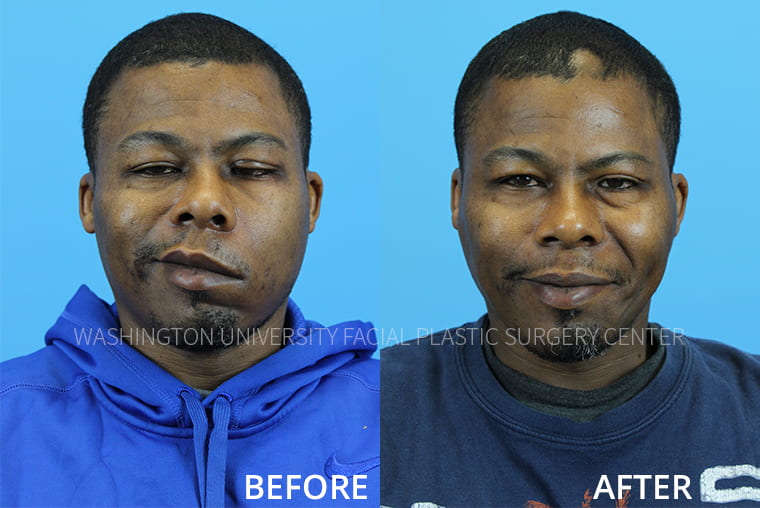Examining the Mental and Social Elements That Drive People to Consider Cosmetic Surgical Treatment as a way of Renovation
The choice to pursue cosmetic surgical treatment usually expands beyond mere aesthetic appeals, linking with social and psychological characteristics that warrant comprehensive examination. Variables such as self-worth, pervasive societal charm requirements, and the pervasive influence of social media converge to form private inspirations for surgical improvement. As these influences become increasingly prominent, recognizing the underlying emotional and cultural contexts is necessary. What remains to be explored is the extensive effect these elements have not only on personal identification but likewise on broader societal standards and values bordering appeal and approval.
The Function of Self-Esteem
Self-esteem substantially affects a person's choice to pursue cosmetic surgical procedure. Individuals with low self-confidence often regard themselves in a negative light, leading to sensations of inadequacy concerning their physical look. This negative self-perception can drive them to seek surgical treatments as an approach of enhancing their self-image. The desire for enhancement in one's look is often connected to a belief that such changes will certainly raise their overall self-respect and confidence.

Eventually, the duty of self-esteem in the decision-making procedure concerning plastic surgery highlights the complex interaction between body image, individual complete satisfaction, and mental wellness. Recognizing this relationship is critical for healthcare experts to make certain that individuals are making notified choices rooted in realistic expectations and emotional wellness.
Social Elegance Criteria
Influenced by prevalent media representations and cultural stories, societal charm criteria play a critical duty in forming people' assumptions of their very own bodies. These criteria are often identified by an idealized type of appeal that stresses characteristics such as youthful vigor, slimness, and balance. As these perfects are bolstered through various networks, consisting of advertising, television, and film, individuals often internalize these messages, bring about frustration with their all-natural look.
The ramifications of these social norms extend beyond aesthetic preferences; they can influence self-esteem, mental wellness, and social partnerships. People that perceive themselves as falling brief of these criteria might experience sensations of inadequacy, triggering a need for plastic surgery as a means of attaining social authorization. This pursuit is typically fueled by the belief that adapting these perfects will improve not only physical appearance however likewise social standing and personal gratification.
:max_bytes(150000):strip_icc():focal(299x319:301x321)/cardi-b-kim-kardashian-011923-f730f661ba814eec980bba77776d1e59.jpg)
Impact of Social Media Site
The effect of social charm criteria is additional magnified by the increase of social media sites systems, where curated photos and idealized representations of beauty are common. Individuals are continuously exposed to filtered and modified photos, which often portray unattainable physical attributes. This direct exposure cultivates a society of comparison, leading people to evaluate their own look against these commonly impractical benchmarks.
Social media influencers and celebs frequently advertise cosmetic treatments, normalizing the concept that medical enhancements are a viable means for accomplishing societal suitables (plastic surgery rancho cucamonga). The exposure of these enhancements can develop a perception that undergoing cosmetic surgical procedure is a typical technique, thus influencing people to think about similar interventions as a pathway to enhanced self-esteem and social acceptance
Furthermore, the interactive nature of social media sites permits for prompt responses through sort and comments, further strengthening the desire to conform to preferred charm standards. Such communications can aggravate sensations of inadequacy and drive people towards plastic surgery as a way of getting recognition. Eventually, social media plays an essential role in shaping assumptions of appeal, which substantially influences the decision-making procedures surrounding plastic surgery.

Social Viewpoints on Look
Throughout numerous cultures, perceptions of look are deeply rooted in historic, social, and economic contexts, forming people' views on beauty and charm. In numerous societies, look offers as a considerable marker of identity, affecting social condition, professional possibilities, and individual connections. For instance, in some cultures, light skin is typically connected with wealth and advantage, while others might idealize darker skin tones as icons of stamina and authenticity.
Moreover, traditional elegance requirements are frequently perpetuated via social narratives, media depictions, and household influences, bring about varying ideals throughout various regions (plastic surgery rancho cucamonga). In Western societies, the focus on young people and physical conditioning often drives people towards cosmetic improvement, while in particular Eastern societies, even more subtle changes lined up with conventional aesthetic appeals might be chosen
Globalization and the proliferation of electronic media have better complicated these dynamics, developing a hybridization of beauty suitables that goes beyond geographical boundaries. As individuals increasingly navigate these cultural stories, the pressure to adjust to details look criteria can lead to the desire for plastic surgery, reflecting an intricate interplay of personal ambitions and social worths. Understanding these cultural perspectives is essential in dealing with the inspirations behind cosmetic surgery considerations.
Mental Impacts of Plastic Surgery
Numerous individuals seeking cosmetic surgery record experiencing extensive mental influences that can significantly alter their self-perception and emotional well-being - plastic surgery rancho cucamonga. The need for physical enhancement commonly comes from underlying issues such as reduced self-worth, body dysmorphic condition, or societal stress pertaining to appeal my response requirements. For some, the prompt post-operative helpful hints phase can lead to a temporary increase in confidence and complete satisfaction with their look, promoting a feeling of empowerment
Nevertheless, these positive sensations may not be sustaining. Research indicates that while some individuals experience improved self-worth, others might face intense stress and anxiety or clinical depression if their expectations are not met. This disparity can develop from unrealistic suitables perpetuated by media depiction and social narratives bordering beauty.
In addition, the psychological ramifications of plastic surgery expand beyond the individual. Relationships with family members and close friends might be stressed as social dynamics change, leading to feelings of seclusion or alienation. Inevitably, the mental influences of cosmetic surgical treatment are intricate and multifaceted, needing cautious factor to consider by both prospective individuals and doctor to make sure enlightened decision-making and realistic expectations.
Final Thought
Finally, the decision to go after plastic surgery is significantly redirected here influenced by a mix of self-esteem problems, societal charm criteria, and cultural viewpoints on look. The pervasive reach of social media even more worsens these stress, promoting unrealistic suitables that individuals commonly make every effort to achieve. Understanding these psychological and social elements is vital for attending to the motivations behind cosmetic surgical procedure, highlighting the need for a more nuanced discussion surrounding charm and self-acceptance in contemporary society.
The choice to pursue cosmetic surgical treatment commonly extends beyond mere visual appeals, intertwining with social and emotional characteristics that merit complete assessment. Eventually, social media plays a crucial function in shaping perceptions of beauty, which considerably affects the decision-making processes bordering cosmetic surgical treatment.
As individuals increasingly navigate these social narratives, the pressure to conform to details look standards can lead to the need for cosmetic surgical procedure, showing a complicated interaction of social worths and personal desires.In final thought, the decision to go after cosmetic surgical treatment is substantially influenced by a mix of self-confidence issues, social charm standards, and social point of views on appearance. Comprehending these social and mental factors is crucial for resolving the motivations behind cosmetic surgical procedure, highlighting the requirement for an extra nuanced conversation bordering charm and self-acceptance in modern society.